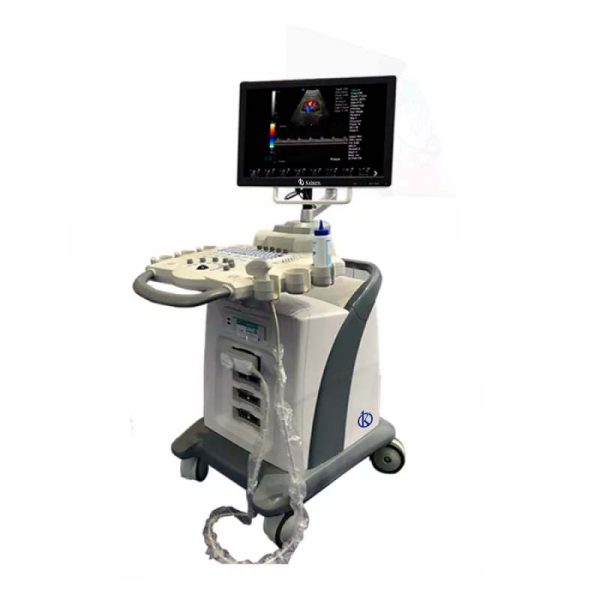In the field of diagnostic medicine, ultrasound scanners have revolutionized the way tests are conducted and patient health is monitored. Choosing the right equipment can make a significant difference in laboratory test efficiency and patient treatment improvement.
In this article, we will compare Kalstein’s ultrasound scanners with some of their main competitors in the market, highlighting the advantages and disadvantages of each.
Are you yearning for top-tier medical equipment, ready to enhance the efficiency of your laboratory? Visit https://kalstein.de/category-product/medical-line/ultrasound-scanner/ to explore our high-end catalog, packed with the best finds at the most competitive prices. Excellence marks our brand, we innovate and manufacture high-precision equipment, both reliable and durable to meet your needs. Why wait? Make your quick and secure online purchase, take the leap towards the future of medical technology today. https://kalstein.de/
Innovation and Technology: Kalstein vs. Competitors
The Kalstein brand is known for its focus on innovation and advanced technology in its ultrasound scanners. These devices are equipped with the latest technological advancements that allow for high-resolution imaging and better diagnostic accuracy. On the other hand, competitors such as GE Healthcare and Philips also offer scanners with cutting-edge technology but often at a higher cost.
Kalstein has integrated features such as advanced Doppler technology and 3D and 4D imaging modes, which are essential for accurate diagnostics. In comparison, although GE Healthcare offers similar technology, its user interface can be less intuitive for new users. Philips, on the other hand, stands out for its ability to integrate artificial intelligence into its devices, allowing for advanced automation in testing, albeit at a significant cost.
Performance and Precision: Detailed Comparison
Performance and precision are critical factors in choosing an ultrasound scanner. Kalstein scanners are recognized for their high precision and consistency in obtaining results. This is due to their ability to minimize noise and enhance image clarity, which is crucial for reliable diagnostics.
GE Healthcare devices are also known for their robust performance and image precision, though some users have reported that initial calibration can be more complex. Philips, with its integration of artificial intelligence, offers exceptional precision, but this comes with a steeper learning curve for lab technicians. In terms of laboratory test efficiency, Kalstein offers a balanced solution that combines performance and ease of use.
Cost and Accessibility: Kalstein vs. the Competition
Cost is a decisive factor for many medical institutions when acquiring new equipment. Kalstein offers ultrasound scanners at a competitive price without compromising quality. This accessibility has allowed many healthcare centers to enhance their diagnostic capabilities without exorbitant investment.
In comparison, GE Healthcare and Philips scanners tend to be more expensive. GE Healthcare justifies its price with a wide range of features and technical support, but this may not be accessible to all healthcare centers. Philips, with its focus on artificial intelligence and advanced automation, also comes at a higher price, which may limit its accessibility to institutions with tighter budgets.
Ease of Use and Training
Ease of use is essential to ensure that technicians can operate ultrasound scanners efficiently. Kalstein has designed its devices with intuitive and easy-to-learn interfaces, significantly reducing the training time required for new users. This translates into greater laboratory test efficiency and improved patient treatment by enabling faster and more accurate diagnostics.
GE Healthcare and Philips have also worked on the usability of their devices, but with different approaches. GE Healthcare offers a feature-rich interface that may require more extensive training. Philips, on the other hand, focuses on automation, which can simplify some tasks but at the cost of a steeper initial learning curve. In terms of ease of use, Kalstein offers a clear advantage for institutions seeking quick and effective implementation.
Maintenance and Technical Support
Maintenance and technical support are crucial aspects to consider when choosing an ultrasound scanner. Kalstein offers robust technical support and easy maintenance for its devices, ensuring high availability and minimal downtime. This is especially important for institutions that rely on these devices for their daily operations.
GE Healthcare and Philips also provide high-quality technical support, but with some differences. GE Healthcare has a wide global support network, though some users have reported longer response times in specific regions. Philips offers exceptional technical support, especially for its high-end devices, but this can involve significant additional costs. In this aspect, Kalstein provides an optimal balance between efficient technical support and manageable costs.
Advantages and Disadvantages Summary
|
Feature |
Kalstein |
GE Healthcare |
Philips |
|
Technological Innovation |
High tech, intuitive interfaces |
High tech, complex interface |
AI integration, high automation |
|
Precision and Performance |
High precision, low noise |
High performance, complex calibration |
Exceptional precision, learning curve |
|
Cost and Accessibility |
Competitive price |
Expensive, advanced features |
Expensive, advanced AI |
|
Ease of Use |
Easy to use, quick training |
Feature-rich, extensive training |
Automated, initial learning curve |
|
Technical Support |
Robust support, easy maintenance |
Global support, variable response times |
Excellent support, additional costs |
Conclusion
Choosing an ultrasound scanner depends on multiple factors, including technological innovation, precision, cost, ease of use, and technical support. Kalstein offers a balanced solution that excels in all these aspects, providing accessible, easy-to-use, and highly precise devices. While competitors like GE Healthcare and Philips also offer high-quality products, their higher costs and steeper learning curves may be limiting for some institutions.
Ultimately, the best choice will depend on the specific needs and budget of each healthcare center. However, Kalstein presents a robust and accessible option that can meet the demands of most institutions, significantly improving laboratory test efficiency and patient treatment.

